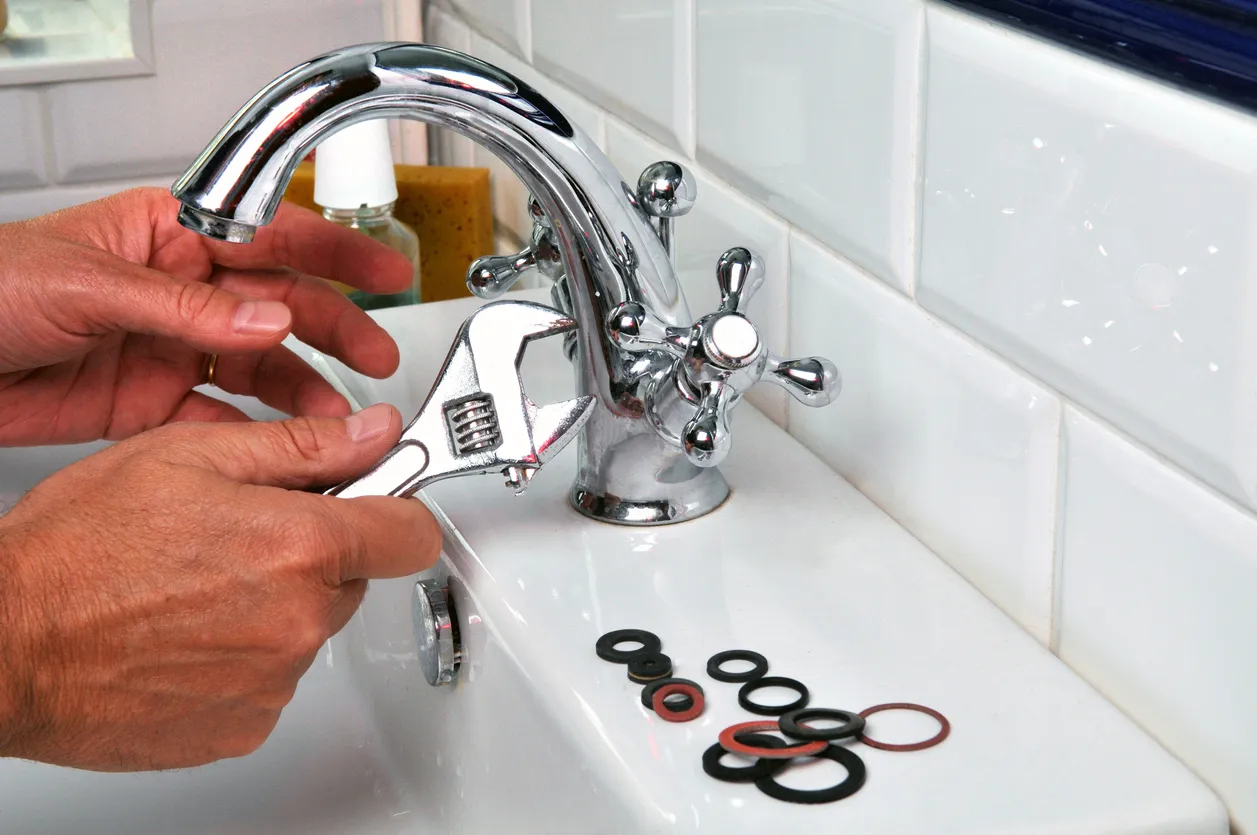What It's Essential to Resolve a Broken Faucet
What It's Essential to Resolve a Broken Faucet
Blog Article
What're your ideas regarding Why Is It Important To Fix Your Leaking Tap/Faucet??

Trickling faucets may feel like a minor trouble, yet their impact exceeds simply the annoyance of the noise. From drainage to sustaining unnecessary financial expenses and health dangers, overlooking a leaking tap can result in various repercussions. In this write-up, we'll explore why it's critical to resolve this common house concern quickly and properly.
Wastefulness of Water
Ecological Impact
Dripping taps contribute dramatically to water wastage. According to the Epa (EPA), a single faucet trickling at one drip per second can waste more than 3,000 gallons of water each year. This not just strains water resources however additionally affects communities and wild animals depending on them.
Financial Prices
Increased Water Bills
Beyond the environmental effect, leaking taps can pump up water expenses considerably. The gathered wastefulness gradually equates into higher energy costs, which could have been avoided with prompt fixings.
Possible Property Damages
Additionally, extended dripping can bring about damage to fixtures and surface areas bordering the faucet. Water buildup can trigger staining, corrosion, and also architectural problems if left unattended, causing extra repair prices.
Health and wellness Worries
Mold And Mildew and Mold Development
The consistent visibility of dampness from a dripping tap develops an ideal environment for mold and mildew and mold development. These fungis not only jeopardize indoor air quality but also present wellness threats, particularly for individuals with respiratory conditions or allergies.
Waterborne Diseases
Stagnant water in dripping taps can come to be a breeding place for germs and various other microorganisms, enhancing the threat of waterborne illness. Contaminants such as Legionella microorganisms thrive in stationary water, potentially bring about major ailments when ingested or breathed in.
DIY vs. Expert Repair
Benefits and drawbacks of DIY Fixing
While some may attempt to deal with a dripping faucet themselves, do it yourself fixings come with their own set of difficulties. Without correct knowledge and tools, do it yourself efforts can aggravate the concern or lead to incomplete repair work, extending the issue.
Benefits of Employing an Expert Plumber
Employing an expert plumber makes sure that the underlying root cause of the leaking faucet is dealt with efficiently. Plumbing technicians possess the competence and devices to diagnose and fix tap issues efficiently, conserving time and lessening the risk of more damages.
Step-by-Step Overview to Repairing a Dripping Tap
Tools Required
Prior to attempting to deal with a leaking tap, gather the necessary tools, including a flexible wrench, screwdrivers, replacement components (such as washers or cartridges), and plumber's tape.
Usual Faucet Issues and Their Solutions
Recognize the kind of tap and the specific problem causing the drip. Typical troubles include worn-out washing machines, rusty shutoff seats, or defective O-rings. Describe manufacturer guidelines or on-line tutorials for detailed support on fixings.
Safety nets
Normal Maintenance Tips
To prevent leaking faucets, do routine maintenance such as cleaning up aerators, evaluating for leaks, and replacing worn-out parts quickly. Furthermore, think about mounting water-saving tools or upgrading to a lot more effective fixtures.
Significance of Prompt Repair Works
Dealing with leaking faucets as quickly as they're seen stops additional water wastage and possible damage, ultimately conserving both water and cash in the long run.
Impact on Home Worth
Understanding of Well-Maintained Home
Maintaining a property in good condition, including resolving maintenance problems like trickling faucets, improves its regarded value and charm amongst potential purchasers or lessees.
Influence on Resale Value
Features with well-maintained plumbing components, consisting of faucets, command higher resale worths in the property market. Addressing leaking taps can add to a favorable impact during home assessments and arrangements.
Ecological Duty
Specific Payment to Preservation
Taking duty for dealing with trickling taps lines up with wider efforts toward water conservation and environmental sustainability. Every person's activities collectively make a considerable impact on preserving priceless resources.
Lasting Living Practices
By focusing on timely repairs and taking on water-saving routines, individuals add to lasting living methods that benefit both existing and future generations.
Final thought
Addressing a leaking tap goes beyond mere ease; it's a necessary action toward saving water, reducing economic costs, and securing wellness and residential or commercial property. Whether with DIY repairs or specialist support, taking action to deal with dripping taps is a small yet impactful means to promote responsible stewardship of sources and contribute to a healthier, extra sustainable future.
How to Fix a Leaky Faucet: Step-by-Step Repair Guide
A leaky faucet may seem like a simple annoyance, but if it's not fixed promptly, that leak could cost hundreds to potentially thousands. From water damage to mold, mildew, and high water bills, even a tiny leak can be catastrophic if left unattended. Damage like this can even affect the overall value of your home, so it's important to take the right approach for leaky faucet repair. You may need the help of a plumber in some cases, but we've got a few tips you can try on how to fix a leaky faucet before calling the pros.
Four Faucet Types
When you're learning how to fix a leaky faucet, the first step is knowing what kind of faucet you're working with! There are four common types.
Cartridge Faucets
Cartridge faucets come in one- or two-handled varieties. In one-handled cartridge faucets, hot and cold water combines in a single cartridge. In the two-handled versions, hot and cold water are controlled separately and mixed in the faucet.
Ball Faucets
Ball faucets have a single lever you push up and down to adjust the pressure and rotate to change the temperature. A slotted metal ball controls the amount of water allowed into the spout.
Compression Washer Faucets
They're the oldest type of faucet, but they're still used in many homes — especially older ones. Compression faucets have two separate handles that, when turned, raise or lower the washer that seals a water valve. This valve stops water from flowing through the faucet when it is turned off.
Disc Faucets
Disc faucets rarely need to be repaired due to their maintenance-free design. The water flow is controlled by two discs — the upper one raises and lowers against a fixed lower disc, creating a watertight seal. If your disc faucet starts leaking, you may need to replace the seals or clean residue buildup from the inlets.
Fixing a Leaky Faucet
Step 1: Turn Off the Water
Whether you're learning how to fix a leaky bathtub faucet or how to fix a leaky kitchen faucet, always turn off the water supply to your working area when you're fixing a leak. The last thing you want is a flood added to your list of things to fix.
Look for the shutoff valves below your sink or around the tub and turn them clockwise to stop the water flow. If your faucet doesn't have shutoff valves, you may need to turn off the water for the whole house. Check to make sure it's off by turning the faucet on. If nothing comes out, you're ready to start the repair.
Step 2: Take Apart the Faucet
How you disassemble your faucet depends on the type of fixture you have. You can use a flathead screwdriver to remove the caps on top of the handle or handles for cartridge and compression faucets. Inside, you should see handle screws. Unscrew these with a screwdriver to remove the handle.
Disc- and ball-style faucets will typically have an inlet screw near the handle, and removing that will reveal the interior of the faucet.
Detach the Valve Stem
For cartridge- and compression-style faucets, you'll see the inner valve stem or cartridge once you remove the faucet handles. If you have a compression faucet, unscrew the brass valve stem. If you have a cartridge faucet, pull out the cartridge. If your cartridge has been in place for a while, it may require some tools or extra force to remove it due to mineral deposits.
Examine and Replace Parts
Once you've removed the parts, check them out to confirm what needs to be replaced. You may see corroded rubber washers, O-rings, stems, or cartridges. On a ball-style faucet, check the seats and springs for damage.
If you need to repair a leaky disc faucet, check the inlet and seals on the lower disc.
Once you determine what parts must be replaced, visit your local hardware store. Bring the damaged parts with you to ensure you can purchase the correct components to replace them.
Clean Valves and Faucet Cavity
If you've removed a stem or cartridge, you may notice mineral buildup in the faucet's threads. Use white vinegar to clean the valve seat by soaking it for a few minutes, then scrub it away with a soft toothbrush and rinse with warm water. You can also clean the interior of the faucet in the same way.
Reassemble the Faucet
Once your faucet is cleaned and the required parts have been replaced, it's time to reassemble it. Put the pieces back together and slowly turn the water supply back on. Doing this slowly is crucial because too much initial water pressure can damage the new hardware you've just installed.
https://homewarranty.firstam.com/blog/how-to-fix-leaky-faucet

Do you like more info about Why Is It Important To Fix Your Leaking Tap/Faucet?? Write a short review directly below. We will be glad to know your responses about this posting. We are looking forward to see you back again in the near future. Enjoyed our content? Please quickly share it. Help others check it out. I enjoy your readership.
Report this page